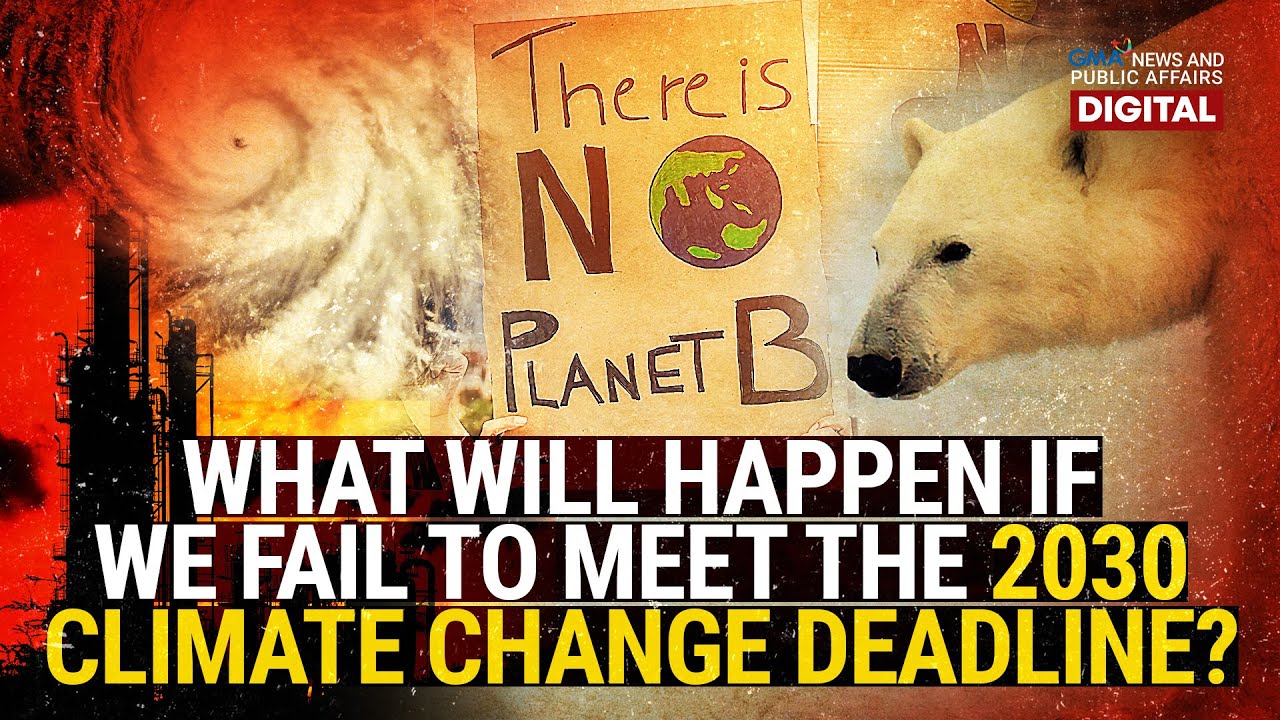The Problem With Food and Climate — and How To Fix It | Jonathan Foley | TED
Summary
TLDRThis script highlights the significant impact of our food system on climate change, contributing to about 22% of global emissions. It emphasizes the need for a science-based plan to address this issue, focusing on reducing emissions through efficiency, sustainable diets, protecting ecosystems, and improving farming methods. The script also discusses the potential for carbon removal through rewilding and regenerative agriculture, advocating for a combined effort to create a better food system that nourishes the world, reduces environmental pressure, and combats climate change.
Takeaways
- 🌱 The food system's land use is massive, accounting for about 38% of Earth's land, which is significantly more than the land covered by cities and suburbs (<1%).
- 🐄 Almost three-quarters of this land is used for animal agriculture, either for grazing or growing feed, indicating a substantial environmental footprint.
- 🌡️ Agriculture contributes to climate change, being responsible for about 22% of global greenhouse gas emissions, similar to the emissions from electricity or industry.
- 🌳 Deforestation for agricultural purposes is a major concern, contributing to 11% of global emissions, which is more than the entire US economy's emissions.
- 🐮 Livestock, particularly cattle, are significant methane emitters, with one pound of beef producing 100 pounds of greenhouse gases on average.
- 🚜 Industrial farming practices, including excessive use of chemical fertilizers, contribute to pollution and greenhouse gas emissions.
- 🍽️ Food waste is a significant issue, with 30-40% of all food grown never being consumed, highlighting the inefficiency and unnecessary emissions in the food system.
- 🌿 Shifting towards more plant-rich diets can significantly reduce greenhouse gas emissions, as animal products generally have a higher emissions footprint per pound of food.
- 🌳 Protecting and restoring ecosystems, such as forests and prairies, can help store carbon and reduce emissions from deforestation.
- 🌱 Improving farming methods, such as reducing chemical fertilizer use and adopting regenerative agriculture practices, can lower emissions and improve soil health.
- 🔄 The food system has the potential for carbon removal through rewilding old agricultural lands and practicing regenerative agriculture, although it should not replace emission reduction efforts.
Q & A
How does our food system contribute to climate change?
-Our food system contributes to climate change through various means including deforestation for farming, methane emissions from livestock, industrial farming methods, and rice production, which together account for about 22% of global greenhouse gas emissions.
What percentage of Earth's land is used for growing crops and grazing animals?
-Approximately 38% of Earth's land is used for growing crops (in green) and grazing animals (in red), with 29% of that specifically for animals, either for grazing or growing animal feed.
How does the land use for agriculture compare to urban areas?
-All the cities and suburbs on Earth cover less than 1% of Earth's land, which is significantly less than the 38% used for agriculture.
What are the four major contributors to greenhouse gas emissions within the food system?
-The four major contributors are deforestation, methane from livestock, industrial farming methods, and rice production.
How much of global emissions are attributed to deforestation?
-Deforestation contributes to about 11% of global emissions, which is more than the entire US economy's emissions.
What is the impact of discarded food on greenhouse gas emissions?
-Discarded food that ends up in landfills and rots can produce methane, which is counted as an industrial emission.
What is the percentage of food grown on Earth that is never eaten?
-About 30 to 40% of all the food grown on Earth is never consumed, making food waste a significant contributor to unnecessary land, water, and greenhouse gas usage.
Why is shifting towards more plant-rich diets considered beneficial for the climate?
-Shifting towards plant-rich diets is beneficial because animal products, particularly beef, have a much higher greenhouse gas emission per pound compared to plant-based foods.
What is the role of commodity agriculture in deforestation?
-Commodity agriculture, especially the clearing of forests for beef, soybeans for animal feed, and palm oil, contributes significantly to deforestation and is a major concern for climate change.
How can we improve farming methods to reduce emissions?
-We can improve farming methods by adopting more efficient practices such as reducing food waste, using less fertilizer, and possibly incorporating techniques from organic or precision agriculture.
What are the two additional pillars for addressing the food and climate crisis mentioned in the script?
-The two additional pillars are rewilding old agricultural lands and practicing regenerative agriculture to build up soil carbon and vegetation cover.
What is the potential of the food system in addressing the climate crisis?
-The food system has the potential to not only reduce its own emissions but also to remove carbon through rewilding and regenerative agriculture, thereby contributing positively to climate change mitigation.
Outlines

Этот раздел доступен только подписчикам платных тарифов. Пожалуйста, перейдите на платный тариф для доступа.
Перейти на платный тарифMindmap

Этот раздел доступен только подписчикам платных тарифов. Пожалуйста, перейдите на платный тариф для доступа.
Перейти на платный тарифKeywords

Этот раздел доступен только подписчикам платных тарифов. Пожалуйста, перейдите на платный тариф для доступа.
Перейти на платный тарифHighlights

Этот раздел доступен только подписчикам платных тарифов. Пожалуйста, перейдите на платный тариф для доступа.
Перейти на платный тарифTranscripts

Этот раздел доступен только подписчикам платных тарифов. Пожалуйста, перейдите на платный тариф для доступа.
Перейти на платный тарифПосмотреть больше похожих видео

The Tipping Point | Climate Change: The Facts | BBC Earth

The diet that helps fight climate change

Why beef is the worst food for the climate

What will happen if we fail to meet the 2030 climate change deadline? | Need to Know

Come ridurre le emissioni di CO2 nel quotidiano?

Ist Fleisch WIRKLICH schlecht fürs Klima?
5.0 / 5 (0 votes)
